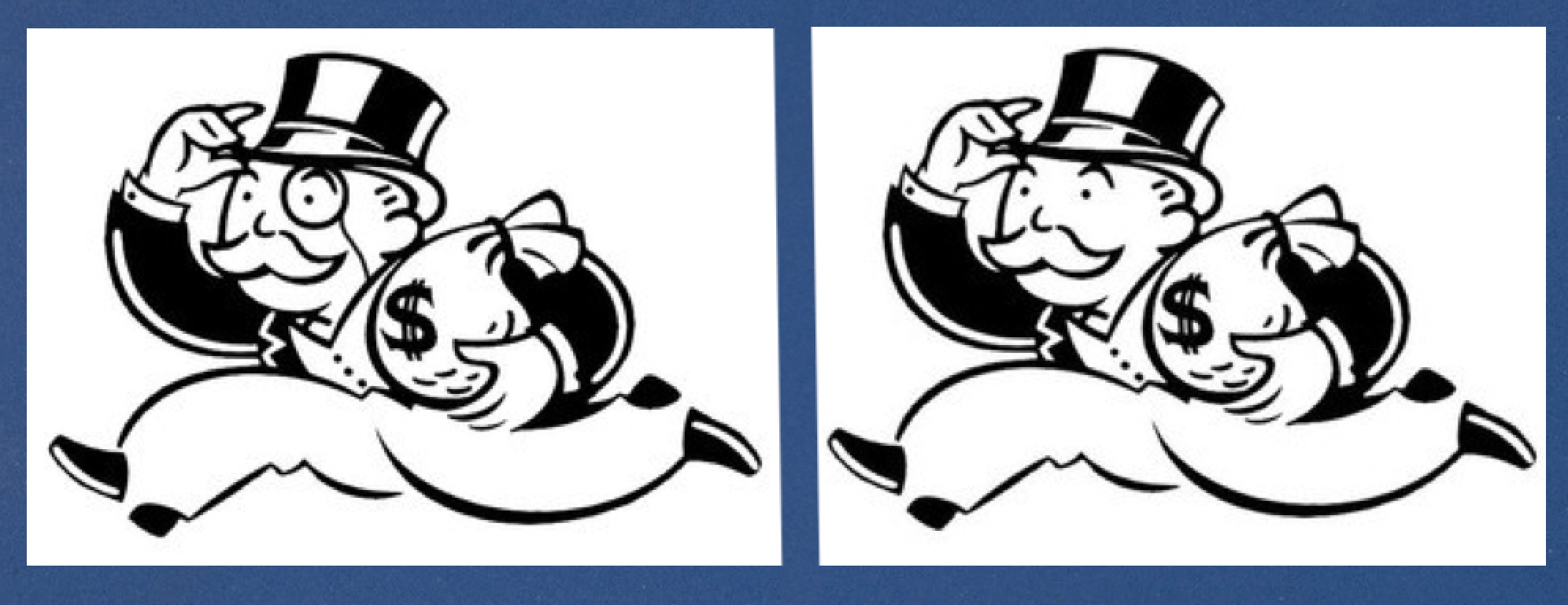|
By: R. Mautner Picture from: https://vgcollect.com/forum/index.php?topic=10406.0 First, I want you to picture the old man from the Monopoly logo. Try to include as much detail as you can. Now think: did your mind include his monocle? If that’s the case, you are under the Mandela effect: he’s never worn one!
In case you’re not familiar, the Mandela effect is a phenomenon people noticed in 2013 upon Nelson Mandela’s death, when many claimed to vividly remember him dying in the 80s and 90s. It wasn’t simply a case of fake news, not only since fake news wasn’t as common then as it is now, but also because people described detailed accounts of his death. Later, other false memories were brought to light: the monkey from Curious George never had a tail, the ‘Berenstain Bears’ show is spelled with an ‘a’ and not an ‘e’, and the Kit Kat logo never had a hyphen. This mind-blowing tendency led many to theorize that these false memories came from parallel universes where they were true. Although the multiverse theory has much potential, there is an easier explanation for this, and it has everything to do with our brains. In essence, our brains function like a pattern-recognition machine. Consciously or not, all of us are constantly observing and gathering information from our surroundings, which our brain processes and stores in our memory. The point of the memorizing system is not objectively to store memories in full detail, but rather to use the patterns from these memories to predict future, similar situations. That’s why our memories do fault, and quite often. Whenever we forget a detail from a memory – either because our mind represses it, or simply due to lack of attention – our brains will try to fill the hole in that memory using its pattern-recognition ability. This explains widely why we so often recall certain things and details that were never there: it’s because our minds assume that they were. In Monopoly, for example, if you think of an elderly, wealthy man, it’s likely that you associate this with a monocle since you have this pattern stored in your brain. You’d also think Curious George has a tail since all monkeys have tails, and you’d spell ‘Berenstain Bears’ as ‘Berenstein’ since similar words like ‘Frankenstein’, ‘Einstein’ and ‘Goldstein’ are all spelled with an ‘e’. These logical (but inexistent) connections turn out to be common among so many people that it is easy to think it is a shared experience, such as shifting parallel universes. Moreover, our perceptions of our own memories are naturally very solid, so even if one knows their memory isn’t accurate, they still feel like it is. All of this is how the Mandela effect happens. We must consider that the Mandela effect only shines light on examples we are all used to, like the products and shows mentioned. However, at the same time, we have singular, personal memories whose accuracy no resource can confirm. Knowing that memory can deceive us, it’s important that we’re always critical towards our own memories: even when they feel completely real, it may just be our brains deceiving us.
0 Comments
Leave a Reply. |
Categories
All
Archives
June 2024
|

